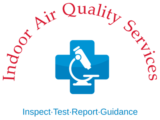Fast, Reliable Air Quality Service with Over 10 Years of Experience
Frequently Asked Questions
Air quality testing is a process that involves measuring and analyzing the composition of indoor air to determine its quality. It helps identify potential pollutants, allergens, toxins, and other contaminants that may impact the health and comfort of occupants.
Air quality testing is important because it allows you to assess the indoor air quality of your home, workplace, or any other indoor environment. It helps identify potential health hazards, such as mold, volatile organic compounds (VOCs), radon, allergens, and more. By identifying and addressing these issues, you can create a healthier and safer indoor environment.
Common indoor air pollutants that can be tested for include mold spores, pollen, dust mites, pet dander, bacteria, formaldehyde, volatile organic compounds (VOCs), carbon monoxide, radon, and various other chemicals and allergens.
Air quality testing is conducted by certified professionals using specialized equipment. The process typically involves taking air samples from different areas of the indoor space, which are then analyzed in a laboratory. The results are interpreted, and a detailed report is provided, outlining the findings and any necessary recommendations.
The duration of air quality testing can vary depending on the size of the space being tested and the specific tests being conducted. Generally, it can take a few hours to a full day to complete the sampling process. The laboratory analysis and generation of the final report may take an additional few days.
Air quality testing can benefit homeowners, businesses, schools, healthcare facilities, and any other indoor environment. It is particularly important for individuals with allergies, asthma, respiratory conditions, or weakened immune systems. Additionally, it can be valuable for anyone concerned about the quality of the air they breathe.
If the air quality test reveals a problem, it is important to consult with professionals who can help you address the specific issue. Depending on the findings, it may involve improving ventilation, mitigating moisture or mold, reducing pollutant sources, implementing filtration systems, or taking other necessary steps to improve indoor air quality.
The frequency of air quality testing depends on several factors, including the age of the building, its history of maintenance or renovations, occupant health concerns, and surrounding environmental factors. As a general guideline, it is recommended to conduct air quality testing every few years or whenever there are specific concerns or changes in the indoor environment.
Yes, our air quality testing professionals are certified and have the necessary expertise and qualifications to conduct comprehensive air quality assessments. They are trained to use state-of-the-art equipment and follow industry standards and guidelines to ensure accurate and reliable results.

